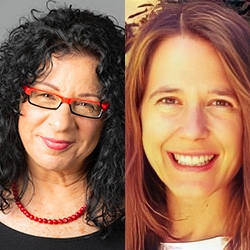

Search Results: shift
-
Living Compassion, for Robert, represents the spirituality that resides in every aspect of Nonviolent Communication. Its foundational principles are represented by three primary qualities or states of being: clarity, compassion and empowerment.
In this course you’ll explore – and practice – how the unfolding of inner clarity opens your way to compassion, which further unfolds into empowerment. Throughout this unfolding process, Robert will include maps and tips for shifting your everyday life from one that is relatively limiting to a life that is both transformative, healing and liberating.
-
Taking 100% Responsibility offers a powerful antidote to the all-too-common dynamic of blaming that leaves you in the victim position and unable to have the relationship you want. Miki invites you to assume a stance of leadership while holding full care for both parties’ needs. No longer will you need to wait for the other person to change, nor will you need to give up your needs to reach harmony.
-
Trainer Tip: Today, when you tell yourself that you "have to" or "should" do something, notice what you feel and experience - is it a sense of duty, obligation, guilt, shame, overwhelm, constriction, heaviness? Then consider the underlying needs you are trying to meet with the activity. This can shift the purpose and intention with an energy that motivates our actions can bring empowerment and joy to our lives.
-
Although we are evolutionarily designed for collaborating with others when attending to our basic needs, the weight of the systems and cultural messages we have inherited interfere. Many of us are doubtful that collaboration is possible or effective, and most of us lack both the faith and the skills to live collaboratively, regardless of cultural imperatives. Miki helps us navigate this terrain.
-
- Tune into your self-dialogue with a compassion that supports loving presence
- Shift limiting beliefs about your parenting patterns so you can choose consciously
- Transform frustration, confusion, or guilt into constructive, honest discussions
- Foster your ability to say yes and no in a way that supports your natural limits
-
Sometimes I hear people say things like, “I didn’t do Compassionate Communication this week.” Or “I tried Compassionate Communication when I was arguing with my wife last week.” Compassionate Communication is not a thing to do, or to pull out of our bag of tricks once in a while. Compassionate Communication is a consciousness of valuing everyone’s needs and of valuing connection more than being right, winning or protecting ourselves. It is a way of living.
-
Hello,
I’m Iris Bawidamann. When Mary reached out to me asking if I’d write this letter, I sat for some time meditating on what is alive for me and what I want to share with you… This is what surfaced for me… Fear sits with me—on my shoulders, in my chest. A familiar presence I consciously keep in check so it doesn’t take over. Watching global politics, conflicts, and rising polarization, I often feel overwhelmed. The world is shifting.
-
Why is it so difficult to not take things personally? It's because everything reinforces the sense that whatever is being said is indeed about us – both from without and from within. However, we can get better at not taking things personally with a practice of shifting our focus by being open to multiple interpretations, understanding that our reaction is about our own need, and noticing how the other person’s words, no matter how they sound to us, are an expression of their needs. We can then be more present and available to navigate the situation.
-
To help you stay connected to yourself and the other person when in challenging discussions about COVID-19 vaccines or other hot issues, without labeling others as reactive or otherwise, you can begin by tracking signs of your own reactivity to bring mindfulness onboard, then shifting your attention to universal needs; and asking to connect about it later. Read on for more.
-
Kristin Masters explores how to approach goal-setting and self-reflection with compassion and mindfulness grounded in NVC principles. She encourages you to examine how conscious choice plays a role in how we treat ourselves and others.
-
Most people want to punish perpetrators of sexual violence. Unfortunately, punishment doesn’t lead to lasting widespread change. Rather, we can identify root causes and conditions that sustain violence. That means shifting from individual to systemic lenses, and from punitive to restorative responses. It means collective learning about how such acts are nurtured and persist. This can reduce the chance of it happening again.
-
Total inclusion is impossible: inclusion of all can often lead to exclusion of those who can't bear the behaviors of some. Many groups flounder and disintegrate because of too much inclusion. Limited resources and capacities may make it necessary to exclude. Keeping more coherent shared values and strategies may be another reason to place membership conditions so that what appears to be exclusion may give movements a chance to expand.
-
Trainer Tip: Research shows long-term change comes when people have intrinsic desire to change. Extrinsic motivation is temporary and often only lasts while we're observed (eg. driving the speed limit when police are there). Notice where you're mostly intrinsically or extrinsically motivated. How does this feel? For instance, do you call mom because you want to connect with her? Or because you’re worried she’ll be hurt if you don’t?
-
Our brains often quickly categorizes things as good, bad, right, or wrong and then determines who’s to blame or praise. Maybe this supports the illusion of order and predictability, thus provides a false sense of safety and reassurance. But its less effective in truly meeting our needs. By practicing "Living in the Observation," we can focus on reality, avoid unhelpful rumination, and find peace and empowerment in everyday life.
-
Trainer tip: When we express moralistic judgments we are implying that other people are wrong or bad because they don’t act in ways that are in harmony with our values. Judging the situation or people can create distance and hurt. Instead, we can express our needs and how we're affected, bringing greater connection and healing. Today, notice how often you judge, and how you feel when you judge.
-
This is an opportunity to explore/transform a limiting belief you have about yourself using what science is discovering about neurobiology. A limiting belief is simply an idea or thought we have about ourselves/life that we or others have affirmed over and over again – these ideas usually get in the way of living life fully.
-
"All humans share the same needs" -- tragically, this idea can hide the reality that some people with less power in society have needs that go unmet to a greater extent, much longer, and with more dire consequences. Often, when the marginalized bring up experiences related to their membership in a certain group, their pain isn't acknowledged, and focus shifts to the listener's discomfort. The concept of universal human needs can be used to silence and minimize their pain. Read on for how to proceed.
-
- Make use of felt-sense and somatic awareness to support faster and deeper shifts in yourself and others
- Master silent empathy to give more ease and flow in your empathy guessing
- "Streetify" your NVC practice by learning how to make your NVC practice more fluent, colloquial, and "natural" and match the person you're speaking with
- De-mystify empathy guessing by learning to identify key linguistic queues
- Build an "emergency empathy" tool kit---with "quick fixes" for challenging situations by using each step of the model for maximum effectiveness
- Interplay both the NVC "mindset" (consciousness/intention) and the NVC "tool kit" for greater ease, fluency and effectiveness
-
When we feel pain about humans relate to, and conflict with, one another on Earth what can give us capacity to transform it? Perhaps in connection to the formless consciousness of unity we may relax, open, expand -- and connect to formless human needs, a sense of universal well being, benevolence and good will. Loving action flows from here. Suffering shifts into deep healing, grace and new possibility.
-
- Learn your body’s “language” and how to listen deeply to it
- Expand your NVC toolbox with emergency self-empathy tips
- Explore drawing on your senses to get past what is blocking you
- Discover and practice that “missing step” in the NVC process

Quick Links
Subscription Preferences
Stay In Touch!
Looking for ways to keep up with NVC Academy news, get special offers, free resources, or words of inspiration? Here are five ways to stay engaged:




















